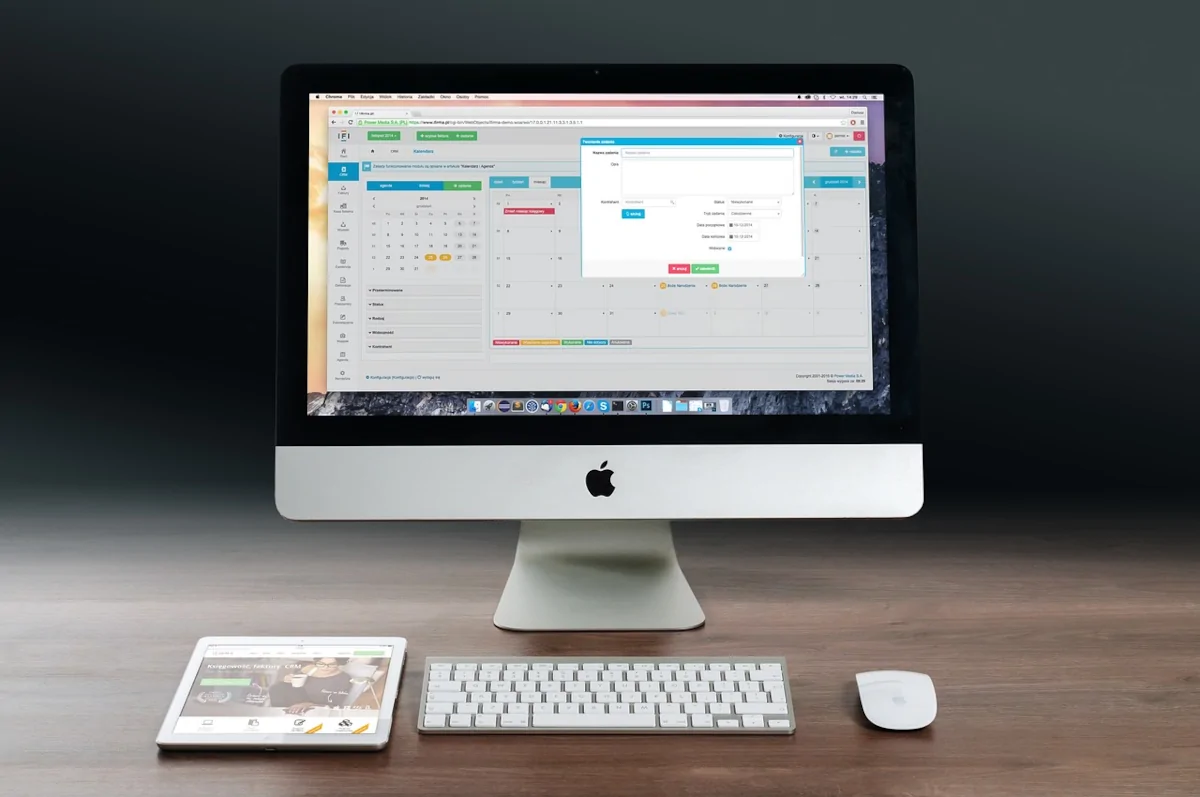We live in a world where apps are an integral part of our daily lives. Whether it's for shopping, social networking, or getting directions, there's an app for almost everything. But have you ever thought about the differences between web apps and mobile apps? Knowing these differences is crucial, especially if you're deciding which type of app to use or develop. Let's explore what sets them apart and why it matter
Why It's Important
Knowing the difference between web apps and mobile apps is crucial for both users and developers. For users, it helps in choosing the right app for their needs. For developers, it guides them in creating the best user experience. With the app market growing rapidly, it's essential to understand these differences to make informed decisions.
What Are Web Apps?

A web app is an application that you access through a web browser like Chrome, Firefox, or Safari. You don't need to download or install anything; you just open your browser and go to the software website. Examples of web applications include Google Docs, online shopping sites, and email clients like Gmail. These apps run on web servers and are accessible through URLs. They rely on internet connectivity and are often built using HTML, CSS, and JavaScript.
What Are Mobile Apps?

Mobile apps, on the other hand, are applications that you download and install on your smartphone or tablet. They are designed specifically for mobile devices and can take advantage of features like GPS, camera, and touch gestures. Examples of mobile apps include Instagram, Snapchat, and Google Maps. These apps are available through app stores like Google Play and Apple’s App Store. They are usually built using programming languages like Swift for iOS and Kotlin for Android.
Key Differences
1. Development and Maintenance Costs
- Web Apps: Typically cheaper to develop since they only require a single codebase for all platforms, whereas mobile apps need a different version for each operating system, which can increase development costs.
- Mobile Apps: Developing separate native apps for iOS and Android demands more resources, but they offer better performance and integration with device features.
2. User Experience
- Web Apps: Good for a wide reach, but may lack the polished, responsive experience offered by mobile apps. Progressive Web Apps (PWAs) are a middle-ground solution, providing offline access and some device interaction, though not as extensively as native mobile apps.
- Mobile Apps: Superior in providing a tailored, immersive user experience, especially for interactive apps that require device capabilities.
3. Access to Device Features
- Web Apps: Limited in access to device hardware and OS features, though they perform well on any browser.
- Mobile Apps: Can utilize device hardware more effectively, enabling a broader range of interactions, from augmented reality to location-based features.
4. Update and Maintenance
- Web Apps: Automatically updated without user intervention, simplifying maintenance.
- Mobile Apps: Require periodic updates, which users must download. However, app stores often enforce strict update policies to ensure app quality and security.
5. Performance
- Web Apps: Run within a browser, so they may be slower than mobile apps, particularly for complex, data-heavy applications.
- Mobile Apps: Native apps, in particular, offer smoother and faster performance, as they are optimized for the operating system and hardware on which they run.
Pros and Cons
Web Apps:
Pros:
1. Cross-Platform Compatibility: A single codebase can work on all devices with a compatible browser.
2. Instant Access and Updates: Users access the latest version every time they visit, eliminating the need for manual updates.
3. Cost-Effectiveness: Web apps are generally cheaper to develop and maintain compared to separate native apps for each platform.
Cons: Limited access to device features, performance can vary based on browser.
Mobile Apps:
Pros:
1. Enhanced User Experience: Native apps are optimized for device-specific performance and offer smooth navigation.
2. Offline Access: Many mobile apps can work without an internet connection.
3. Access to Device Features: Mobile apps can access features like the camera, push notifications, and location services, making them ideal for interactive, real-time experiences.
Cons: Need to be installed, and require manual updates.
Security
Security is a crucial aspect when comparing web apps and mobile apps. Mobile apps often benefit from the inherent security features of the platform they're built on. For instance, iOS apps run in a sandbox environment, which limits their interaction with other apps. Web apps, however, are more vulnerable to threats like cross-site scripting (XSS) and SQL injection. Developers must follow best practices to secure their applications, such as input validation and using HTTPS.
User Experience
The user experience (UX) can greatly differ between web apps and mobile apps. Mobile apps usually offer a more immersive and responsive experience because they are optimized for mobile devices. They can use native elements that make the app feel like a natural extension of the device. Web apps, while convenient, might not provide the same level of responsiveness and interactivity due to limitations in browser technology.
Cost and Development Time
Building a mobile app can be more time-consuming and expensive compared to a web app. This is because mobile apps often require separate versions for different platforms (iOS, Android), each with its own development environment and language. Web apps, on the other hand, are built once and can run on any device with a browser, which can save both time and resources.
Offline Functionality
One of the significant advantages of mobile apps is their ability to work offline. Mobile apps can store data locally on the device, allowing users to access certain features without an internet connection. Web apps, however, rely heavily on internet connectivity and offer limited offline functionality.
Push Notifications
Push notifications are a powerful feature of mobile apps that keep users engaged. These notifications can alert users about new messages, updates, or other important information even when the app is not in use. Web apps can also send push notifications, but this feature is less common and not as widely used due to varying levels of browser support.
Real-Life Examples
Think about how you use Google Maps. When you access it through your browser, it's a web app. But when you use the Google Maps app on your phone, it's a mobile app. The mobile app can use your location to give you directions, while the web app can't.
Hybrid Apps

It's also worth mentioning hybrid apps, which combine elements of both web and mobile apps. Hybrid apps are built using web technologies like HTML, CSS, and JavaScript but are wrapped in a native container that allows them to be installed on mobile devices. Examples of hybrid apps include Twitter and Uber. These apps can take advantage of both web and mobile features, offering a balance between performance and accessibility.
When to Choose a Web App vs a Mobile App
Choose a Web App If:
• You want cross-platform compatibility with minimal development costs.
• The app is content-driven and requires only internet access to function.
• You’re prioritizing accessibility over complex features.
Choose a Mobile App If:
• You need high performance and the ability to use device-specific features.
• The app will function offline or in areas with limited connectivity.
• You’re building an interactive app that relies heavily on real-time data, like social media or gaming apps.
Expert Opinions
According to experts, both web apps and mobile apps have their own advantages and use cases. For instance, web apps are great for tasks that don't require heavy processing or device-specific features. Mobile apps, on the other hand, are ideal for applications that need to leverage device capabilities. John Doe, a technology analyst, states, "Choosing between a web app and a mobile app depends on the target audience and the features required. Each has its own strengths and weaknesses."
Conclusion
In conclusion, understanding the differences between web apps and mobile apps is essential for making informed decisions as a user or developer. Web apps are great for accessibility and ease of use, while mobile apps offer better performance and access to device features. By knowing these differences, you can choose the right app for your needs and enjoy a better user experience. Whether you're looking to develop an app or decide which type to use, considering factors like installation, access, features, and user experience will guide you to the best choice.

